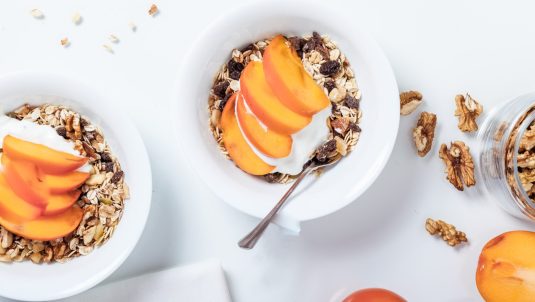If you’re trying to eat healthier or supplement your diet with the nutrients that you need, you may have noticed that there are many types of vitamins out there. One group of them is known as fat-soluble vitamins. They come in several varieties and have some important functions, and if you have any questions about them we bet that they’ll be answered in this blog!
What are Fat-Soluble Vitamins?
Fat-soluble vitamins are mostly found in foods that contain fats, and the body absorbs them in the same way that they would absorb different types of fat found in your food. Many other types of vitamins are known as water-soluble vitamins, so there are only four fat-soluble vitamins that are critical parts of every diet. These are:
- Vitamin A
- Vitamin D
- Vitamin E
- Vitamin K
All of these have health benefits, and you should make an effort to make sure that your diet contains enough of each.
Benefits of Fat-Soluble Vitamins
Each type of fat-soluble vitamin offers a variety of health benefits. Vitamin A, which is a collection of compounds called retinoids, can help with your vision. It also boosts your immune system. Vitamin D is good for the immune system too, but its main role is in maintaining bone health. Getting enough vitamin D and calcium is a must if you want to have strong bones as you age.
Vitamin E is also an antioxidant. It gives your body a boost when it tries to take care of “free radicals,” which are unstable particles that can contribute to cell damage and a variety of ailments and diseases, including cancer. Finally, vitamin K can help lower your risk of developing heart disease. It also can help improve your bone health, as vitamin D can.
Sources of Fat-Soluble Vitamins
Now that you know more about why you need fat-soluble vitamins, you need to know where you can get them from. Let’s look at some common sources for each vitamin.
Vitamin A: This vitamin can be found in a wide range of products. You’ll find it in beef liver and fish liver oil. Dairy products, like cheese and milk, can also contain significant amounts of vitamin A. Then there are veggies, like carrots, kale, sweet potato, and spinach, which contain beta carotene, a nutrient that the body converts to vitamin A.
Vitamin D: This can be found in many types of fish, fortified cereals and dairy products, eggs, and plant-based milks, like oat milk. You can also get vitamin D from the sun.
Vitamin E: If you want more vitamin E, snack on sunflower seeds and almonds, and get more spinach, broccoli, and mango into your diet.
Vitamin K: This vitamin can be found in green vegetables, like spinach, parsley, and kale. And if you’re concerned about getting more vitamin K in your diet, don’t ditch the egg yolks.
Learn More About Healthy Eating
Visit the Organic Restaurants blog if you would like to learn more about healthy food, supplements, and how to balance your diet a bit better. Our website is full of resources that can help you find organic food, healthy vegetarian eateries, and so much more.
Find restaurants with organic options near you
Search by city or see restaurants close to you.






 Sign in with Google
Sign in with Google Sign in with Facebook
Sign in with Facebook